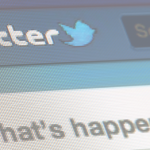Patient advocates, researcher-clinicians and academic leaders are calling for closer scrutiny of new technologies applied within healthcare, citing concerns about a lack of consideration for how they may affect patient care.


Ryan Basen |
Patient advocates, researcher-clinicians and academic leaders are calling for closer scrutiny of new technologies applied within healthcare, citing concerns about a lack of consideration for how they may affect patient care.
Linda Carroll |
(Reuters Health)—Patient portals at U.S. hospitals leave a lot to be desired in terms of privacy when individuals want to share access with an informal caregiver, a new study finds. At nearly half of 102 hospitals included in the study, personnel advised that patients share their account password to give access to a family member…

Throughout a patient’s lifetime, providers are entrusted with their most intimate and personal information, which they expect to be kept private and confidential. Unfortunately, the healthcare system can face serious implications if any part of a patient’s privacy or information is breached. Under the Health Information Portability & Accountability Act (HIPAA) and state laws healthcare…

Isabelle Amigues, MD, & Paul Sufka, MD, on behalf of the ACR Committee on Ethics & Conflict of Interest |
Social media has revolutionized my practice. I stay current with Twitter content from other rheumatologists, patient organizations and medical journals. I am also an active member of the international Twitter-based rheumatology journal club, #RheumJC. Still, I was recently surprised when my patient’s name appeared in a friend request. This same patient was following me on…

Should cell phones and other personal devices be used for work communications in a medical practice? According to one expert, these devices are a liability to rheumatologists and other providers, who should develop and enforce strict guidelines in their practices…

Forty-five years ago, a computer engineer in Boston sent an electronic message between two computers some 10 feet apart. It took another 10 years or so before the electronic mail message was dubbed email—a term now, perhaps, more ubiquitous than any other in the lexicon of modern communications. Despite the seemingly definitive place email communication…
Lisa Rapaport |
(Reuters Health)—Just because a health app has a privacy policy doesn’t mean the data will remain private, an analysis of mobile tools for diabetes suggests. In fact, privacy policies appear rare, and when they do exist, most state that user data will be collected and half warn that medical information will be shared with third…

Over the years, cell phones have evolved from purse-size behemoths to the size of a wristwatch. In addition, they have moved from basically a portable telephone to the smartphones of today. Both the changes in size and the added functions have resulted in new concerns for physicians. “We had a family meeting about two years…
Kathryn Doyle (Reuters Health) |
Large-scale health data breaches reported by doctors and health plans have been rising steadily, a new report shows. From 2010 to 2013, nearly 1000 large breaches affected more than 29 million individual health records, and more than half resulted from theft or loss of laptops, thumb drives and paper records, according to researchers with access…
From the College |
Maintain compliance with updated federal rules governing privacy protection for patient health information